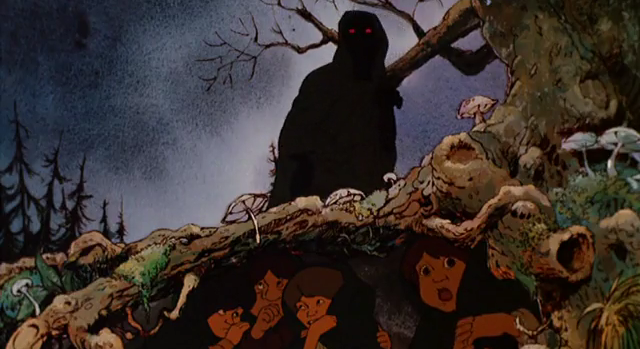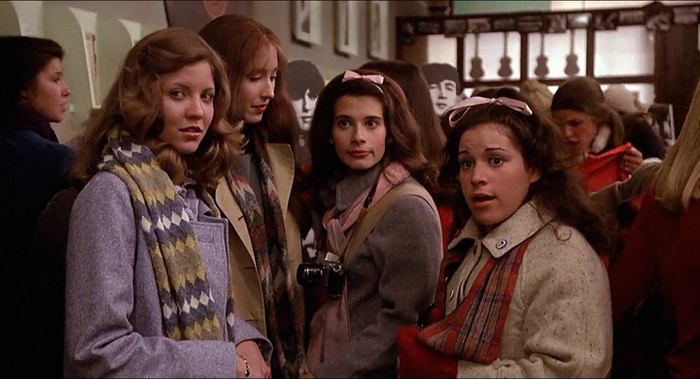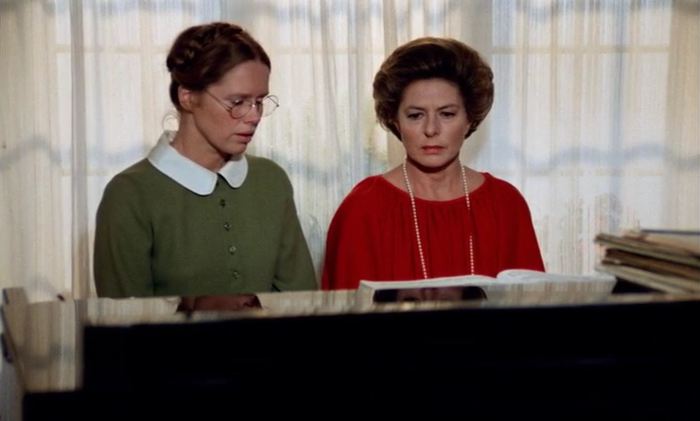The 1978 project is a deep dive into the cinema of a single year, undertaken on a whim late last year. As it turns out, this is somewhat good timing, as tons of 2020 films are getting delayed, so it’s nice to still get a feel for a single year, even if it’s not this year… and honestly, it’s much easier to get a feel for the current year because, you know, you’re already living it. I have no idea when I’ll finish this project, but I’ve been making steady progress. Current status: I’ve seen 62 films made in 1978. I still have at least 10 films I want to check out, if not more. It’s about the journey, not the destination. Speaking of which, let’s see what I’ve been watching whilst in lockdown:
- I Wanna Hold Your Hand – Robert Zemeckis’s feature directing debut about Beatle mania and six teenagers from Jersey who make the trek to NYC to see The Beatles perform on The Ed Sullivan Show. The only problem? They don’t actually have tickets for the show. It’s basically a nostalgic “one crazy day/night” story reminiscent of American Graffiti, except this is much more focused and all the little episodic bits tie together better. This little sub-genre experienced a sorta heyday in the 80s, but has remained with us in various incarnations to this day. It’s also notable that most examples of this sort of thing are not led by teenage girls, which this definitely is (though a couple of boys are along for the ride). I tend to like, but not love, these sorts of movies, but this one is definitely one of the better examples. The use of the Beatles really serves to crystallize what could easily have fallen into a fractured narrative with no cohesive point. The tone is also perfectly calibrated. Zemeckis isn’t parodying or mocking Beatle mania, nor is he especially praising it. It’s just a thing that existed, and while the goal of getting to meet the Beatles might seem silly, it’s not like it wasn’t a common desire at the time. Zemeckis takes the time to show that the screaming throngs of teenage girls outside the Beatles’ hotel all had their own stories and hangups and reasons to be there, and the result is a playful little film that doesn’t feel forced or cloying (as Zemeckis would later do with Forrest Gump), but remains sweet and a whole lot of fun. ***
- Up in Smoke – The first Cheech and Chong flick and landmark stoner comedy holds up reasonably well, I guess, but this duo has never really been my thing. They get into wacky adventures and do drugs and it all feels disjointed and pointless… but then, no one is claiming this is high art (though maybe it is, um, “high” art). Some of the bits work well enough and I chuckled a few times, and I like the concluding rock show where Cheech is running around in a tutu playing guitar… but it’s not like I’m gonna rush out and watch the rest of the Cheech and Chong oeuvre. **
- The Lord of the Rings – Ralph Bakshi’s animated take on the Tolkien classic has a tortured history, and unfortunately that kinda sinks the movie. Bakshi clearly didn’t have the budget to pull off what he was attempting, and there were apparently lots of studio shenanigans and meddling in play. The animation doesn’t look particularly great. There’s a mix of traditional 2D animation and rotoscoping, and the latter comes in a variety of quality ranging from not that bad (I thought it looked ok for wide shots or landscapes) to absolutely horrendous (the barely animated film of extras wearing off-the-shelf gorilla masks pretending to be orcs). The transition between the two styles can be jarring too. A lot of that can be chalked up to budgetary constraints, but even the general designs aren’t that attractive, and the decision to condense the first two books into one narrative leads to an awkwardly plotted, rushed, and yet somehow simultaneously plodding experience. Much of the battles and chases take forever to get through, even as the narrative plows forward. Naturally, it ends on something of a cliffhanger and Bakshi’s follow-up was never produced (though there was a Rankin-Bass attempt to resolve the narrative a couple years later). Bakshi’s movies have a bit of a cult following, and I can kinda see why, but now that we have Peter Jackson’s take on the trilogy, this just pales in comparison.
Even considering that Jackson clearly has some affection for Bakshi’s adapatation (he lifted some scenes directly from the animated version, particularly when the Ringwraith catches up with the hobbits on the road), the live-action films are far better paced and look much better. It’s worth a watch for completists and Tolkien nuts, but probably not much interest to anyone else. *

- Fedora – Billy Wilder’s penultimate film winds up being something like Sunset Boulevard Redux, covering similar themes, perhaps updated for the 70s. Unfortunately, what that means is that the film demands comparison to an all-time classic and can’t help but fail to live up to that standard. That being said, it’s an interesting little ride, and Wilder’s not-so-flattering portrait of Hollywood and its inhabitants works well enough, even when transported to Europe. A down-on-his-luck Hollywood producer attempts to lure the famously reclusive but world-renowned actress Fedora out of retirement. But he’ll have to get past her retinue of well-meaning but possibly abusive hangers-on. It’s not quite as clever or twisty as it wants to be, and it drags in the second act, but it’s still a fun ride and the ending is engaging if not entirely surprising. If it’s a failure, it’s an interesting one. **1/2
- Autumn Sonata – A mother-daughter showdown between an absentee concert-pianist mother and mousy caretaker daughter. Also known as “The Meeting of the Bergmans”, with Ingmar Bergman directing Ingrid Bergman (no relation) in the waning chapters of both of their careers. It starts slow, with the mother arriving for a visit and the daughter seemingly glad to have her… but things gradually become more tense, perhaps even passive aggressive. It all boils over when a lifetime of pent-up resentment and anger gets released one night. This is not normally my thing, but once that second half started, I couldn’t help but fall into the rythms of the movie. It’s talky and melodramatic, but you can’t help but fall for it. Ultimately, I’m not sure how much I really understand about these characters, though it’s hard not to feel for them. Ingmar famously deploys closeups in his directing, and he uses them to good effect here, making the accusations and emotional baggage nearly inescapable. Ingrid Bergman is certainly the more famous actress and she’s great as the overbearing yet oblivious mother, but I was more impressed by Liv Ullmann as the deservedly angry daughter. Her initial meekness and all the niceties of her interactions takes a big turn mid-way through the film, with Ullmann nearly hyperventilating in anger and resentment, and she pulls it off well. Ultimately, I can’t help but respect this movie, even if I don’t especially “enjoy” it or even understand it that well. ***
I’ve got a few more flicks in the hopper, but I’ll leave it at these five for now… look for another recap in a few weeks!

